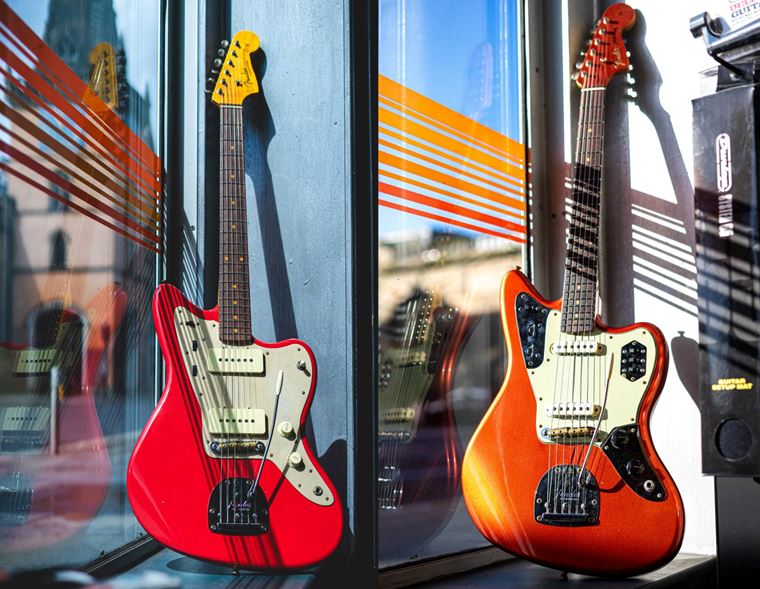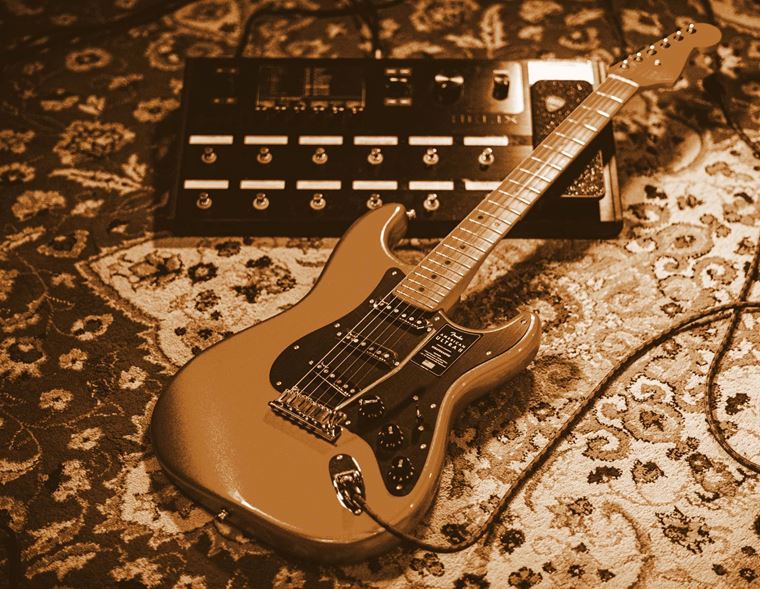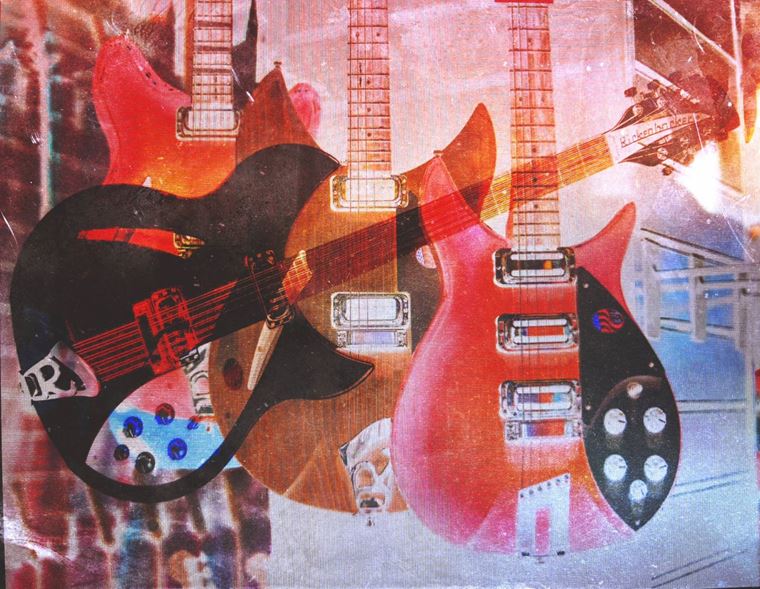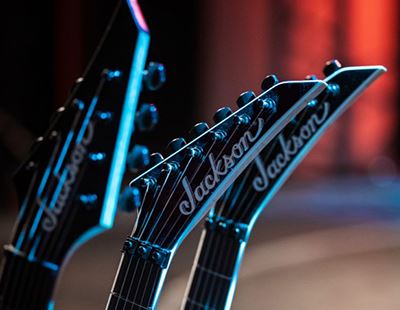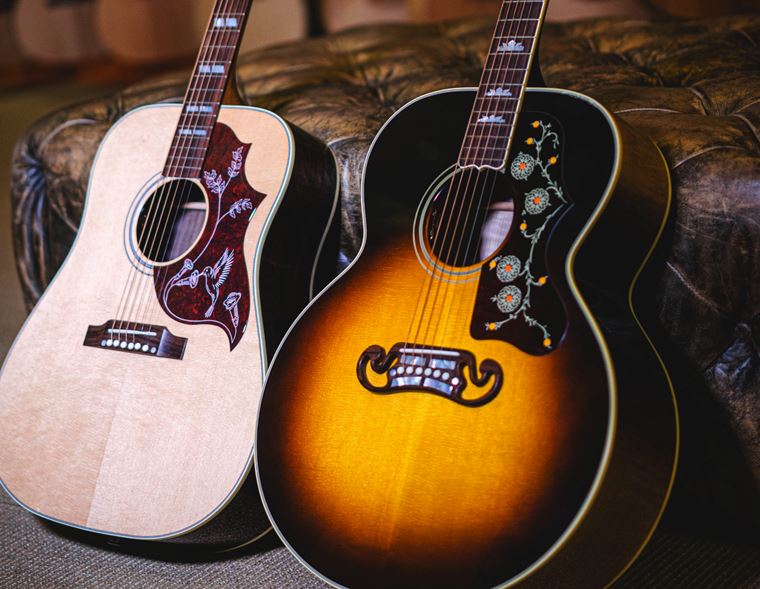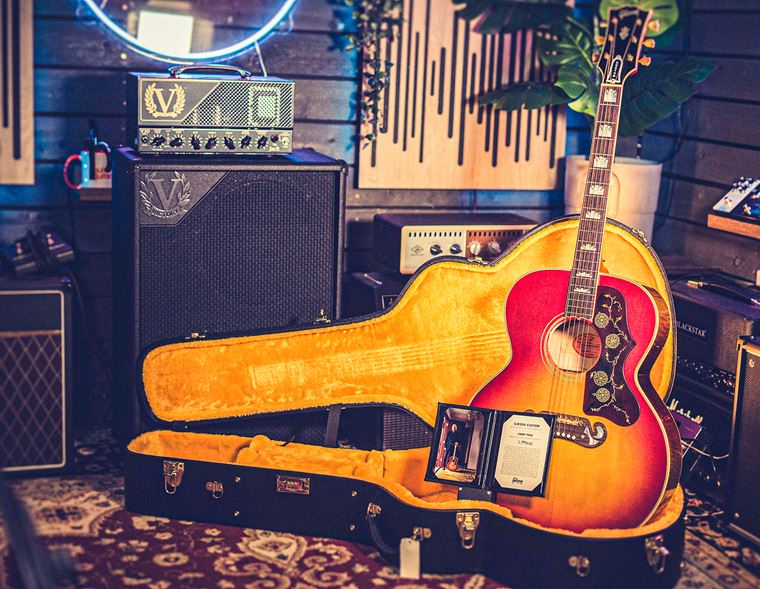International Bands Who Sing in English
Published on 01 April 2025
There is so much great music in the world, from every corner of the planet. From the traditional to the forward-thinking, every country has its own rich heritage of music, sung in its own national languages and dialects.
I will be looking at some of that music in a future blog post, but today I wanted to see the reverse of that particular coin. Today I want to investigate those bands and artists who are international but choose to sing in English.
Is English the international language of rock and pop? Hardly. There are gigantic markets of music in other areas of the world, hugely successful scenes that don’t use English at all. Do you want a quickly-sourced statistic? Here you go, taken from the 2023 Luminate Year-End Music Report:
54.9% of the top 10,000 global tracks released in 2023 were in English. This means that almost half - 45.1% - were not in English! Hardly a niche! Spanish was the biggest non-English language (10%), Hindi (7%), Korean (2.4%) and Japanese (2.1%).
In the US, the same report found that English-language streaming was down by 4.8%, even though streaming itself was up 34% in general, a huge boost.
No doubt I’ll refer to all of this again when I do the non-English blog, but today I’m going to trot across the globe with you in a very selective way and pick out some top international talent who sing primarily in English. Some - indeed, many - will also use their own native tongues, but English will be predominant.
Are you ready to pack your pretend suitcase and collect some virtual air-miles with me? Alright then!
Contents
Why Do These Artists Sing in English?
What About the Other Countries?
Sweden
Sweden is quite the force in contemporary music. I’m sure there must be loads and loads of Swedish music that is sung in Swedish and pretty much stays over there, but the level of quality from English-speaking Swedish artists is staggering. It’s like a national expert for the country!
ABBA are the obvious progenitors. They have survived decades and decades of relative inactivity (no new music since forever) due to the sheer strength of their songwriting. One of the biggest and most influential pop bands in the world, they’ve proven a success in a way few could have predicted, and have also innovated in terms of live music, with their holographic de-aged selves selling out London’s O2 for months and months.
Ghost are a modern theatrical metal band who sound - to my ears at least - almost like a ‘heavy ABBA’ at times. Building their name with a high-concept narrative, cool costumes and unarguably great tunes, Ghost have become one of the planet’s biggest hitters in terms of metal bands who can sell out arenas across the world.
Robyn is a Swedish singer-songwriter who sings in English and runs her own record label. Influential to the current generation of aspiring female musicians, Robyn is strong proof that you can do things your own way and succeed.
Opeth are one of the biggest and most respected metal bands in the world. From their death metal roots to their position today as the grand masters of haunted prog metal, Opeth are uncompromising. This can mean being extremely heavy and it can also mean being gorgeously melodic and psychedelic.
Interestingly, their 2019 In Cauda Venenon was the first time the sang in their native Swedish: the album was released simultaneously in full English and in full Swedish, with only minor lyric alterations. I’ve been lucky enough to speak with Opeth on three occasions, most recently with guitarist Fredrik Akesson.
Other great Swedish acts include singer-songwriter Lykke Li (who has collaborated with the late, great David Lynch), retro-rockers The Hives and trailblazing cyber-metallers Meshuggah. Onto that list you can also add rockers Arch Enemy, popsters Ace of Base, ‘Final Countdown’ champions Europe and the pop gold of Roxette.
Clearly, there is something in the water over in Sweden: when it comes to producing world-class music, they are real leaders.
France
France has a huge industry of French language music, but there are some bands who choose to sing in English. Gojira may seem like a recent success story, given their triumphant performance at the Olympics in Paris last year, but they’ve been grafting away for decades, gradually becoming a real force in today’s metal scene.
Manu Chao was born in Spain but spent his formative musical years in the ghettos of Paris. He initially found fame with Mano Negra (the Black Hand), a band whose adventures deserve their own blog! Manu found huge fame as a solo artist, with a string of albums that were heard in every backpacker’s hostel from here to Peru a few years ago! Chao has recently released a new album and is touring again after something of a hiatus. Manu tends to sing in a variety of languages including Spanish, French, English and Portuguese, and this is true of Mano Negra too.
He’s a true ‘world fusion’ artist if ever there was one!
Putan Club are a thrilling duo formed by Italian bassist/vocalist Gianna Greco and French guitarist/vocalist Francois Cambuzet. Another international band (based in France), Putan Club collaborate with a variety of artists form places like Senegal and Tunisia, but for their own Putan Club songs, they sing in English.
Away from overtly guitar-based genres, France has made a dent in music with its own takes on retro-electronica and full-on House music, with bands like Air, Daft Punk and Justice creating international musical waves. All of these acts primarily use the English language in their music.
Norway
Norway is well known for being originator and home to the black metal scene in the late 80s and early 90s. Corpsepaint, antisocial behaviour, church burnings and yes, ultimately murder. The true story is pretty wild, it all happened in Norway (mainly) and most of it was sung in English.
Nowadays of course, the genre has spread across the world and so Japanese black metal bands, for example, will have Japanese vocals. So it goes with any popular artistic movements, but nothing is as potent as the original journeys, and seminal Norwegian acts such as Mayhem and Emperor, took those journeys mainly in English.
Another extreme band - though definitely not a black metal band - are Norway’s Shining. Not to be confused with Sweden’s Shining, Shining (NOR) are an intense blend of hyperactive prog metal with full-on jazz saxophone! Click through to this ‘oldie but goodie’ interview with frontman Jorgen Munkeby for more details!
In an altogether less aggressive manner, Norway has also given us one of pop music’s most enduring bands: A-ha! Everyone knows Take on Me, but try digging a little deeper and you’ll discover some real nuggets of songwriting gold. A-ha are enormous everywhere else in the world except the UK, it seems.
Björk (Iceland)
Pioneering vocalist and songwriter Björk is unlike almost any other musician around. Furrowing her own wonderful path through the twin worlds of nature and electronic music, the Icelandic artist has achieved greatness by amplifying her idiosyncrasies.
There’s nobody like her, and that in itself is intensely inspiring.
Germany
Dusseldorf’s finest, Kraftwerk created a future utopia with music that looked forwards instead of onto a post-WWII landscape. They wrote the sound of the future with synthesisers, drum machines and vocoders, eschewing blues influences in favour of distinctly European classical leanings.
These Germans are some of the most widely influential electronic artists in the world. Interestingly, though their ‘official’ album releases are all performed in English, there are German language equivalents of all of their classics too, from Autobahn to The Man Machine (or, I suppose, Die Mensh Maschine).
Germany also has a fine pedigree in hard rock, including classic acts like The Scorpions. From Sails of Charon to the Winds of Change, the Scorpions are stalwarts of the denim and leather hard-rocking world.
Many famous German bands (Rammstein, Einstürzende Neubauten) are far more inclined to stick to their own teutonic vocal tones, only rarely using English language.
Sepultura (Brazil)
Fronted by the mighty Max Cavalera, kept in time by the even mightier Igor Cavalera and rising out of the inner city streets of Belo Horizonte, Brazil, was Sepultura. It can’t have been easy to break into international fame from where they began in the 1980s, but Sepultura became one of the world’s biggest metal bands in the 90s.
The band were ferocious and metallic for sure, but Sepultura’s sound absolutely included indigenous sounds and instruments from ancient South American cultures, too. Max sang in English, and continues to do so with his other projects Soulfly and Cavalera. For a little bit more, click through to the guitarguitar Max Cavalera interview.
Denmark
Denmark may be a small country, but it’s large with international musical talent!
Lots of modern rock fans love Volbeat, a kind of heavy rock ‘n’ roll band from Copenhagen who are an arena-sized attraction and sing in English. They even had Anthrax’s Rob Caggiano on guitar with them for a while!
Myrkur are Danish, and blend the beauty of Scandinavian folklore with the frozen tundras and dark forests of black metal to thrilling effect.
Last of all, a legendary figure (and big influence on Ghost if you ask me…) is King Diamond. Whether going solo or with his band Mercyful Fate, King Diamond is a heavy metal national treasure for Denmark. Tales of horror told with a voice that’s either a scathing sneer or a supersonic wail, King Diamond’s music is as fun and dramatic as the man himself.
Why Do These Artists Sing in English?
So, with so many people now listening to music from other countries (as we learned at the start), why do so many top international bands sing in English?
Without being able to offer anything more than educated guesses, I’d say these factors come into play…
- English is the most-spoken language in the world. 1.5 billion people can speak and understand English, compared with 1.12 billion for Mandarin Chinese, which is the second most spoken language. Many artists use it in order to engage with the biggest potential audience.
- The UK and the USA are still enormously influential artistically across the world, and so many artists grow up listening to music sung in English. British and American rock is something of an evergreen influence, so it may be that this type of music is always somewhat ‘English’ in vocal delivery.
- Certain scenes have a ‘vocal sound’ (for example, English punk is as much to do with the accent as anything else), so people who love those scenes will want to adopt the vocal inflections too, regardless of where they are from.
- Some artists deliberately want to position themselves away from a particular cultural background (for all kinds of reasons), and since the English language is heard and understood throughout the world, it lessens the ethnicity of a vocal.
Those are my thoughts anyway. What do you think?
What About the Other Countries?
What about the other countries? Indeed, there are hundreds of countries out there and I've hardly covered them all. I never could, but aside from the sheer size of variety, I’ve learned a couple of things along the way:
Africa, the Indian subcontinent, Latin America & other Latin countries and most of Asia all seem to like hearing their own languages, in addition to Western artists. By that, I mean that there seems to be less artists from these areas singing in English, their (mostly) second language. Not none (not by any stretch!), but less. These areas will listen to lots of western artists for sure, but when it comes to music from their own countries, they seem to often prefer those songs to be sung in native tongues.
The other thing I noticed is that a high percentage of English-speaking international bands are from within the metal community. Of course, there are many exceptions (and I’ll encounter them with you in the next blog), but it could be that metal audiences across the world simply want to mosh in English, as it were.
Now, going back to my comments at the beginning of this article, more people than ever are listening to music that is NOT sung in English. I’ll be looking at that soon, so keep ‘em peeled! In the meantime, thanks for reading.



